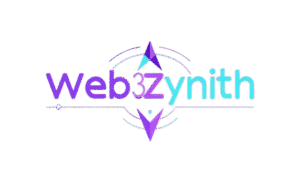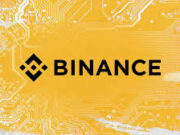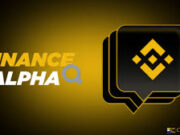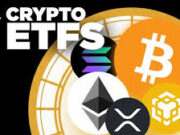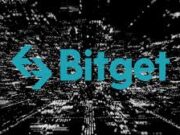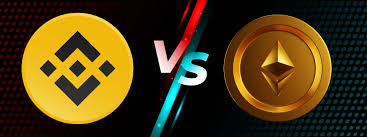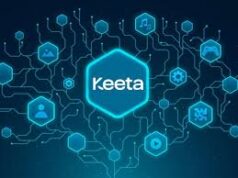The blockchain world is a battleground of innovation, with platforms like Binance Smart Chain (now BNB Chain) and Ethereum leading the charge. Both are powerhouses in decentralized finance (DeFi), NFTs, and Web3 applications, but they differ significantly in architecture, performance, and use cases. This blog post explores the key differences between the BNB Chain and Ethereum blockchain, diving into their technical foundations, strengths, weaknesses, and ultimately, which might be better suited for specific needs in 2025.
Overview of BNB Chain and Ethereum
BNB Chain
Launched in September 2020 by Binance, the world’s largest cryptocurrency exchange by trading volume, BNB Chain (formerly Binance Smart Chain) is a high-performance blockchain designed for fast, low-cost transactions. It operates as a layer-1 blockchain, initially built to complement Binance’s centralized exchange but now a standalone ecosystem supporting DeFi, NFTs, gaming, and more. BNB Chain consists of two integrated chains:
- BNB Beacon Chain: Handles governance and staking.
- BNB Smart Chain: Supports smart contracts and Ethereum-compatible decentralized applications (dApps).
BNB Chain uses Binance Coin (BNB) as its native token for transaction fees, staking, and governance.
Ethereum
Ethereum, launched in 2015 by Vitalik Buterin and others, is the pioneering layer-1 blockchain for smart contracts and dApps. It’s the backbone of DeFi, NFTs, and Web3, hosting thousands of applications like Uniswap, Aave, and OpenSea. Ethereum’s native token, Ether (ETH), powers transactions and smart contract execution. After its transition to Proof-of-Stake (PoS) with “The Merge” in 2022, Ethereum has focused on scalability through layer-2 solutions like Optimism and Arbitrum, with further upgrades like sharding on the horizon.
Key Differences Between BNB Chain and Ethereum
Here’s a detailed breakdown of how BNB Chain and Ethereum compare across critical dimensions:
1. Consensus Mechanism
- BNB Chain: Uses Proof-of-Staked Authority (PoSA), a hybrid of Proof-of-Authority (PoA) and Delegated Proof-of-Stake (DPoS). A limited set of 21 validators, elected by BNB stakers, produce blocks every 3 seconds. This centralized validator model enables high throughput but sacrifices some decentralization.
- Ethereum: Operates on Proof-of-Stake since 2022, with over 1 million validators securing the network. Validators are chosen randomly to propose and validate blocks, ensuring greater decentralization but slower transaction times (12-15 seconds per block).
Key Takeaway: BNB Chain prioritizes speed and cost over decentralization, while Ethereum emphasizes security and decentralization, making it slower but more trustless.
2. Transaction Speed and Scalability
- BNB Chain: Boasts a transaction throughput of ~100-200 transactions per second (TPS), with block times of 3 seconds. Its design optimizes for high-speed, low-latency transactions, making it ideal for dApps requiring rapid execution, like gaming or trading platforms.
- Ethereum: Natively processes ~15-30 TPS with block times of 12-15 seconds. However, layer-2 scaling solutions (e.g., Arbitrum, Optimism) boost Ethereum’s effective TPS to thousands, with rollups batching transactions off-chain while leveraging Ethereum’s security.
Key Takeaway: BNB Chain is faster out of the box, but Ethereum’s layer-2 ecosystem offers comparable or superior scalability for high-throughput applications.
3. Transaction Costs
- BNB Chain: Known for ultra-low gas fees, averaging $0.01-$0.50 per transaction, thanks to its efficient PoSA consensus and centralized validator set. This makes it attractive for microtransactions and frequent dApp interactions.
- Ethereum: Historically plagued by high gas fees (often $10-$100 during peak congestion), Ethereum’s costs have dropped significantly post-Merge and with layer-2 adoption, where fees can be as low as $0.01-$0.10. Still, mainnet transactions remain pricier than BNB Chain’s.
4. Decentralization and Security
- BNB Chain: With only 21 validators, often tied to Binance or its partners, BNB Chain is less decentralized, raising concerns about censorship risks or single points of failure. However, it has maintained robust uptime and security, with no major hacks since a $570 million exploit in 2022, which was mitigated effectively.
- Ethereum: Highly decentralized, with over 1 million validators across 100+ countries, Ethereum is considered one of the most secure blockchains. Its open validator pool and rigorous consensus make it resistant to censorship and attacks, though layer-2 solutions introduce some trust assumptions.
Key Takeaway: Ethereum’s decentralization makes it more secure and censorship-resistant, while BNB Chain trades some decentralization for efficiency.
5. Ecosystem and Adoption
- BNB Chain: Hosts a vibrant ecosystem with over 3,000 dApps, including PancakeSwap, Venus, and Trust Wallet. Its Ethereum compatibility (via EVM) allows developers to port Ethereum dApps easily. BNB Chain’s integration with Binance’s exchange provides unparalleled liquidity and user onboarding, with ~$16 billion in total value locked (TVL) as of June 2025.
- Ethereum: The largest dApp ecosystem, with over 4,000 active dApps and ~$120 billion in TVL across its mainnet and layer-2s. Ethereum dominates DeFi (Uniswap, MakerDAO), NFTs (OpenSea, Blur), and DAOs, with a developer community far larger than BNB Chain’s.
Key Takeaway: Ethereum’s ecosystem is more mature and diverse, but BNB Chain’s tight integration with Binance and lower costs make it a strong contender for specific use cases.
6. Developer Experience and Tools
- BNB Chain: Fully compatible with Ethereum’s Virtual Machine (EVM), allowing developers to use familiar tools like Solidity, Remix, and MetaMask. Its lower fees and faster confirmation times make it appealing for rapid prototyping and deployment.
- Ethereum: The gold standard for smart contract development, with a robust suite of tools (Hardhat, Truffle, Ethers.js) and extensive documentation. Its layer-2 ecosystem adds complexity but also flexibility for scaling dApps.
Key Takeaway: Both platforms are developer-friendly due to EVM compatibility, but BNB Chain’s simplicity and lower costs give it an edge for quick deployments, while Ethereum offers more advanced tooling for complex projects.
7. Tokenomics and Native Tokens
- BNB Chain: BNB ($600-$700 as of June 2025) is used for gas fees, staking, and governance. Binance’s quarterly burn mechanism reduces supply, potentially increasing value. BNB’s market cap is ~$100 billion, making it a top-5 cryptocurrency.
- Ethereum: ETH (~$4,000) powers transactions, staking, and dApp interactions. Post-Merge, ETH’s deflationary mechanism (burning base fees) reduces supply during high network activity. Ethereum’s market cap is ~$480 billion, second only to Bitcoin.
Key Takeaway: Both tokens have strong deflationary mechanisms, but ETH’s broader adoption and higher market cap give it greater stability, while BNB benefits from Binance’s ecosystem.
8. Future Roadmap
- BNB Chain: Plans to enhance scalability with parallel EVM execution and integrate AI-driven analytics for dApps. The Greenfield initiative aims to decentralize data storage, competing with Filecoin and Arweave.
- Ethereum: Focused on sharding (planned for 2026) to boost mainnet TPS to 100,000+ and improve layer-2 interoperability. Ethereum’s “Danksharding” and “The Surge” upgrades aim to make it the most scalable secure blockchain.
Key Takeaway: Ethereum’s roadmap is more ambitious and decentralized, while BNB Chain focuses on practical, ecosystem-driven enhancements.
Which Is Better: BNB Chain or Ethereum?
The answer depends on your priorities and use case:
Choose BNB Chain If:
- You Need Speed and Low Costs: Ideal for dApps requiring fast, cheap transactions, like gaming (e.g., Axie Infinity clones) or microtransactions.
- You’re Tied to Binance’s Ecosystem: Seamless integration with Binance’s exchange, wallet, and liquidity pools makes BNB Chain a go-to for Binance users.
- You’re a Developer on a Budget: Lower gas fees and faster deployment suit startups or projects with limited funding.
- You’re in Emerging Markets: BNB Chain’s low fees and accessibility resonate in regions with high remittance or crypto adoption, like Southeast Asia or Africa.
Choose Ethereum If:
- You Prioritize Decentralization and Security: Ethereum’s vast validator network and battle-tested infrastructure make it ideal for high-stakes applications like DeFi protocols or DAOs.
- You Want a Mature Ecosystem: Ethereum’s dominance in DeFi, NFTs, and Web3 offers unmatched opportunities for developers and users.
- You’re Building for Scale: Layer-2 solutions like Arbitrum and Optimism provide cost-effective scalability while leveraging Ethereum’s security.
- You Value Long-Term Vision: Ethereum’s roadmap, with sharding and upgrades, ensures it remains cutting-edge for years.
Data Comparison (As of June 2025):
| Metric | BNB Chain | Ethereum |
|---|---|---|
| Consensus | PoSA (21 validators) | PoS (1M+ validators) |
| TPS | 100-200 | 15-30 (mainnet); 1000s (L2) |
| Avg. Gas Fee | $0.01-$0.50 | $0.01-$0.10 (L2); $1-$10 (mainnet) |
| TVL | ~$16B | ~$120B (mainnet + L2) |
| dApps | 3,000+ | 4,000+ |
| Market Cap (Token) | ~$100B (BNB) | ~$480B (ETH) |
| Decentralization | Moderate | High |
The Verdict
BNB Chain is better for users and developers seeking speed, low costs, and integration with Binance’s ecosystem. It’s a practical choice for gaming, microtransactions, or projects in cost-sensitive markets. However, its centralized validator model and smaller ecosystem limit its long-term potential compared to Ethereum.
Ethereum is the superior choice for those prioritizing decentralization, security, and a robust ecosystem. Its layer-2 solutions match BNB Chain’s speed and cost while maintaining Ethereum’s trustless foundation, making it ideal for enterprise-grade DeFi, NFTs, or Web3 projects. Ethereum’s developer community and roadmap further cement its position as the leading blockchain for innovation.
Hybrid Approach: Many projects hedge their bets by deploying on both chains. For example, PancakeSwap operates natively on BNB Chain but also supports Ethereum via cross-chain bridges. If you’re undecided, consider multi-chain strategies to leverage both platforms’ strengths.
In 2025, Ethereum remains the gold standard for decentralized applications, but BNB Chain’s efficiency and Binance-backed ecosystem make it a formidable challenger. The “better” blockchain depends on your goals—speed and cost (BNB Chain) or security and scale (Ethereum). As the crypto space evolves, both are poised to shape the future of Web3.
Sources: CoinMarketCap, DefiLlama, Binance Docs, Ethereum.org, CoinGecko, CryptoSlate, Posts on X
